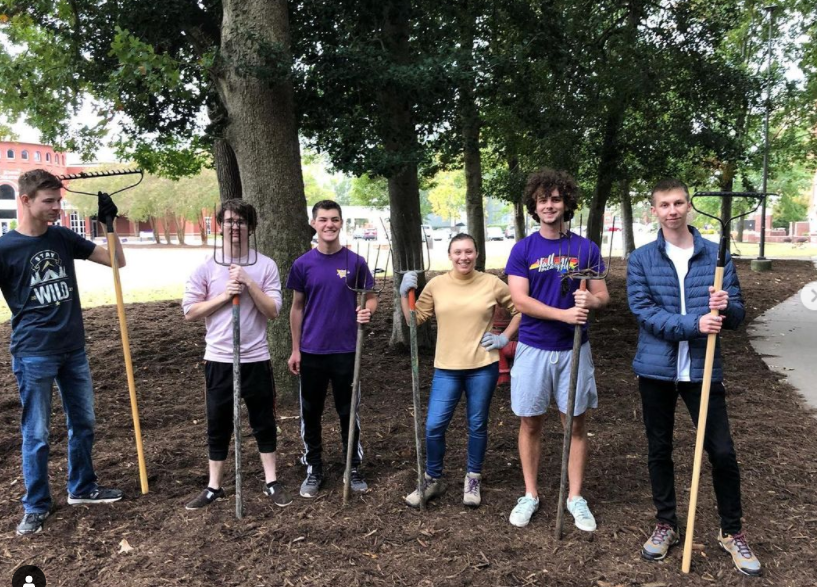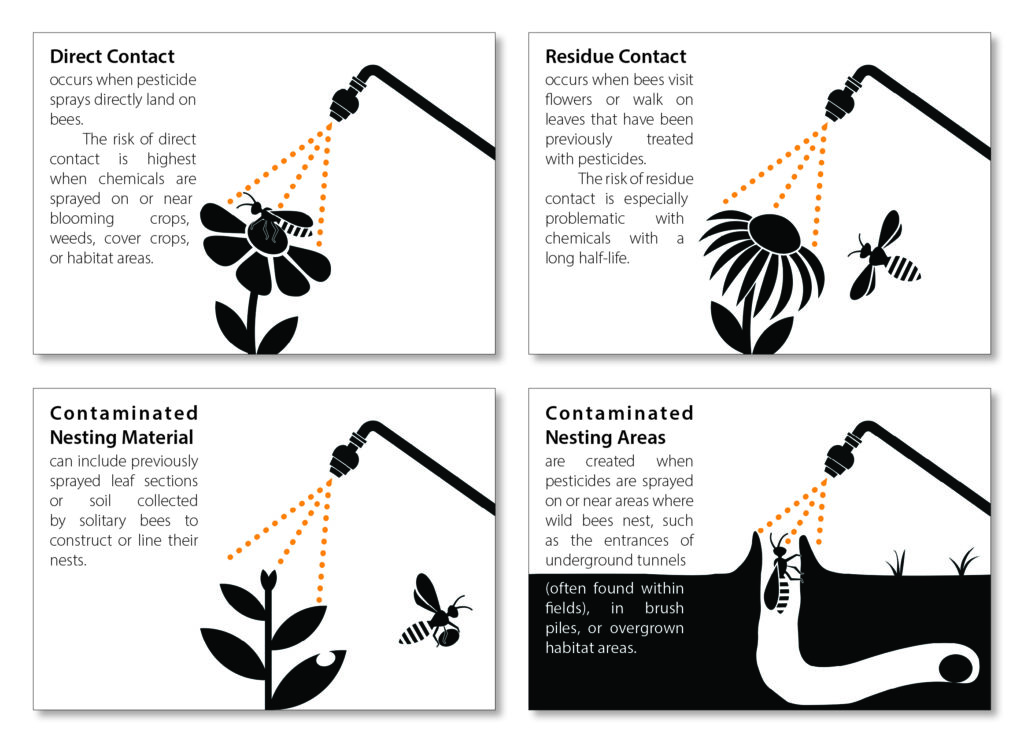Photo: Jennifer Hopwood
pesticides

While the majority of invertebrates fulfill essential functions in healthy ecosystems, including controlling pests, pollinating flowering plants, and providing food for other wildlife, a small number are considered pests. Unwanted species of plants, animals, and microbes are often controlled with pesticides (an umbrella term that includes—but is not limited to—insecticides, herbicides, fungicides, and rodenticides). Pesticides often negatively impact beneficial species in addition to those they aim to control. Contamination resulting from the extensive use of pesticides has been tied to the decline of species important to ecosystems, including pollinators.
Bee City USA and Bee Campus USA affiliates commit to create and adopt an integrated pest management (IPM) plan designed to prevent pest problems, reduce pesticide use, and expand the use of non-chemical pest management methods.
Before the first renewal we ask that affiliates create an integrated pest management plan to guide their practices. Explore the resources below to learn more about pesticides, integrated pest management, and how to create an IPM plan.

Shown above: pesticide exposure pathways to bees include: direct contact, residue contact, contaminated nesting materials, and contaminated nesting areas from How Neonicotinoids Can Kill Bees.
Integrated Pest Management (IPM) is a long-term approach to maintaining healthy landscapes and facilities that minimizes risks to people and the environment by:
- Emphasizing prevention first and seeking to eliminate the underlying causes of plant diseases, weeds, and insect problems rather than only attacking the symptoms (the pests);
- Discouraging pests by altering habitat conditions, employing physical controls, and enhancing pests’ natural enemies;
- Avoiding routine use of pesticides. Pesticides are acceptable if other methods fail to keep pests at acceptable levels. Any applications must minimize unintended consequences, such as harm to people and pollinators.
Explore resources: Pesticide reduction
SYSTEMIC INSECTICIDES: A REFERENCE AND OVERVIEW
With a searchable systemic insecticides database










